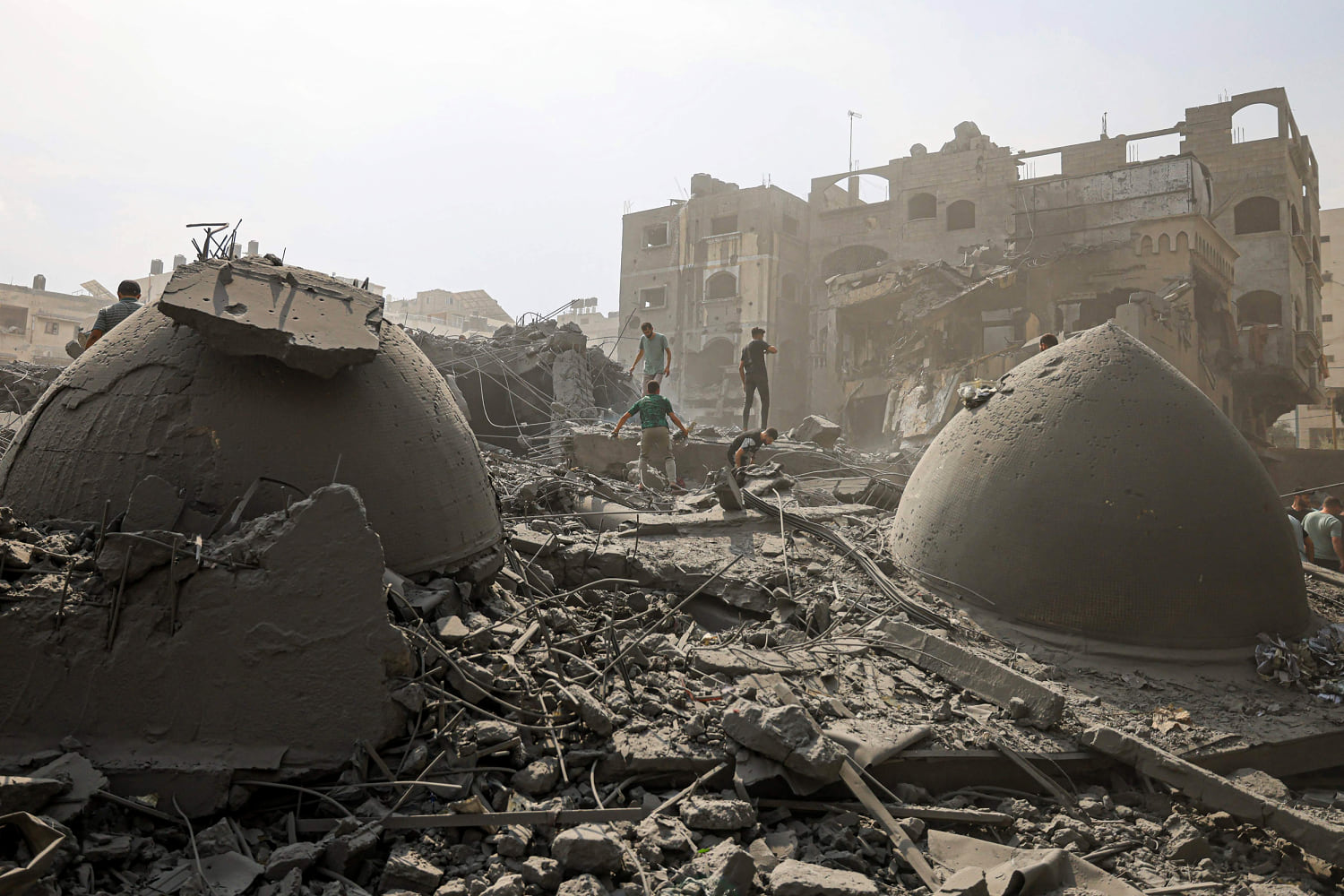

Israel’s air force is getting more U.S.-made bombs to help it destroy the labyrinth of tunnels used by Hamas militants in Gaza to conceal weapons, fighters and hostages. In the aftermath of Hamas’ surprise attack across Israel’s southern border on Oct. 7, Israel has carried out a relentless bombardment of Gaza to try to take out Hamas’ weapons stockpiles and its vast tunnel system. But Israeli ground forces likely will be needed to clear out the tunnel network known as “Gaza’s Metro,” according to former U.S. officials and military officers.
“Clearly, they want to put as many of these out of commission as possible,” said Matthew Levitt, a counterterrorism expert and former U.S. senior national security official.
The tunnels are a “critical” military objective for Israel as it seeks to degrade Hamas’ armed forces and dismantle the militants’ infrastructure, said Levitt, now with the Washington Institute for Near East Policy, a think tank.
Since the Hamas attack on Israel, the Biden administration said it is providing Israel with kits to convert unguided or “dumb bombs” into precision-guided munitions as well as small diameter bombs (SDBs) that experts say are effective weapons against underground targets. The weapons are supposed to enable Israel to target Hamas militants while minimizing harm to civilians, experts said, though humanitarian organizations have expressed concern over the plight of Gaza’s civilian population given the intensity of the Israeli air raids.
In May, the administration gave the green light for the sale of $735 million in precision-guided weapons to Israel. The Israeli military also may also opt to use U.S.-made “bunker buster” GBU-28 bombs that it previously acquired. Those munitions are designed to penetrate hardened targets deep underground, though the bombs leave massive craters and could inflict severe civilian casualties.
The U.S. is supporting the Israeli effort to find hostages in Gaza’s extensive tunnel system, including trying to determine if Hamas is trying to sneak hostages out of Gaza via the tunnels, according to a U.S. official. As Israel conducts airstrikes they are cognizant of where tunnels are and whether civilians could be inside, the official said.
Although Israel has cutting edge technology to detect Hamas’ tunnels, the underground network will present serious challenges for the Israel Defense Forces, according to Bradley Bowman, senior director of the center on military and political power at the Foundation for Defense of Democracies, a think tank.
“A significant number of Hamas terrorists will likely be able to survive air strikes by hiding in the tunnels below Gaza. It is probably safe to assume that Hamas has stocked those tunnels with significant quantities of food, water, weapons, and ammunition,” said Bowman, a former U.S. Army officer and national security adviser to members of the Senate Armed Services and Foreign Relations committees.
Bunkers, generators and weapons
For more than a decade, the tunnels in Gaza have proved a crucial tool in the Hamas arsenal, enabling the militants to frustrate the powerful Israeli military and live to fight another day.
Ismail Haniyeh, the leader of Hamas, once referred to the tunnels as part of “a new strategy in confronting the occupation and in the conflict with the enemy from underground and from above the ground.”
Tunnels dug in Gaza were originally used for smuggling goods in and out of Egypt to circumvent an Israeli blockade. But Palestinian militants built up the tunnels to move rockets and rocket launchers, shield militants from detection by Israeli satellites and aircraft and to stage attacks into Israeli territory. The vast underground system includes storage rooms, electrical generators, command centers and supplies for Hamas’ fighters, according to the Israeli military.
The network has “dozens of access points located throughout Gaza,” and many of the tunnel entrances are next to civilian residences, the IDF says.
Mohammed Deif, the commander of the Qassam Brigades the military wing of Hamas, is believed to be the mastermind behind the tunnel system, according to Israeli media reports.
Dating back to 2006, Hamas militants have dug tunnels inside Israeli territory and staged a series of surprise attacks. As a result, Israel built a specially designed 40-mile underground concrete barrier to try to detect tunnel construction in Gaza. The barrier helped Israel uncover a tunnel in 2020 before Hamas could use the passage to mount an attack inside Israel, according to the IDF.
During a series of military operations in Gaza, Israeli forces have tried to wipe out the tunnel system, but Hamas has rebuilt the tunnels in each case.
Hamas also has a tunnel network linking Gaza to neighboring Egypt, which is used to smuggle both commercial goods and weapons. Some of the tunnels are 18 meters (about 20 yards) below ground, NBC News has previously reported.
Some former U.S. officials say Hamas may choose to move some of the hostages they seized in last Saturday’s attack out of Gaza through the tunnels to Egypt.
asdfasdf
 eMedia Bulletin Online News Portal
eMedia Bulletin Online News Portal






